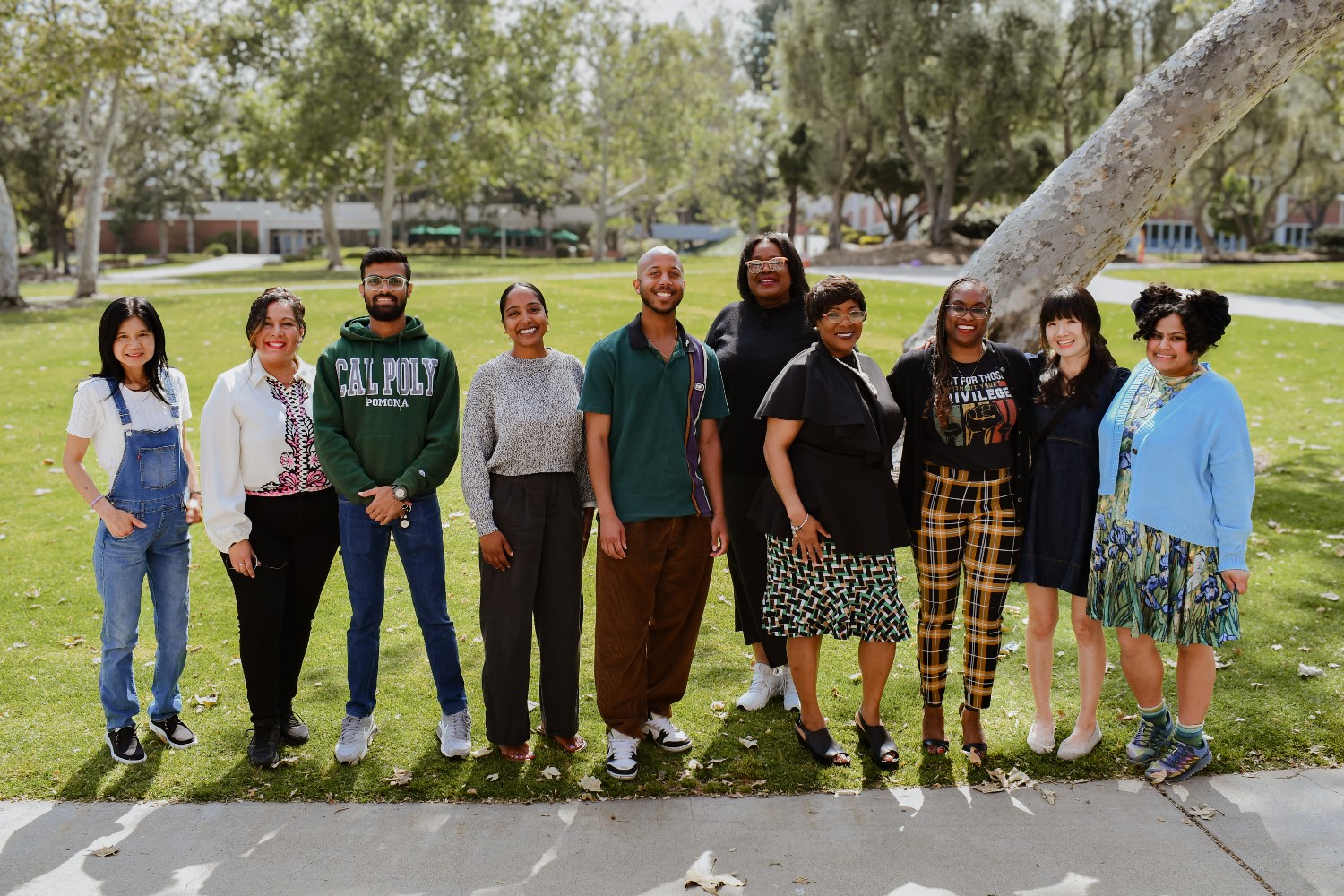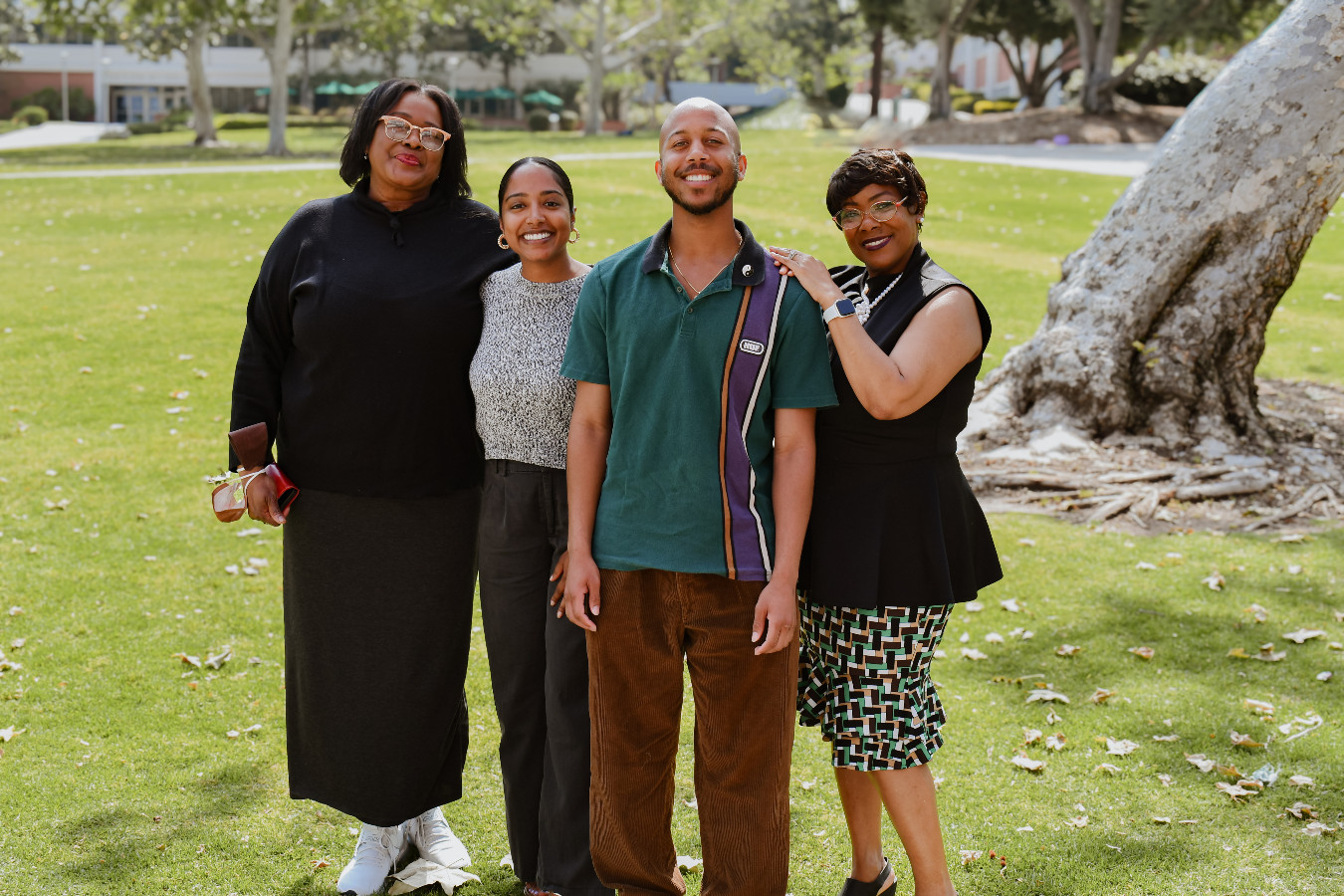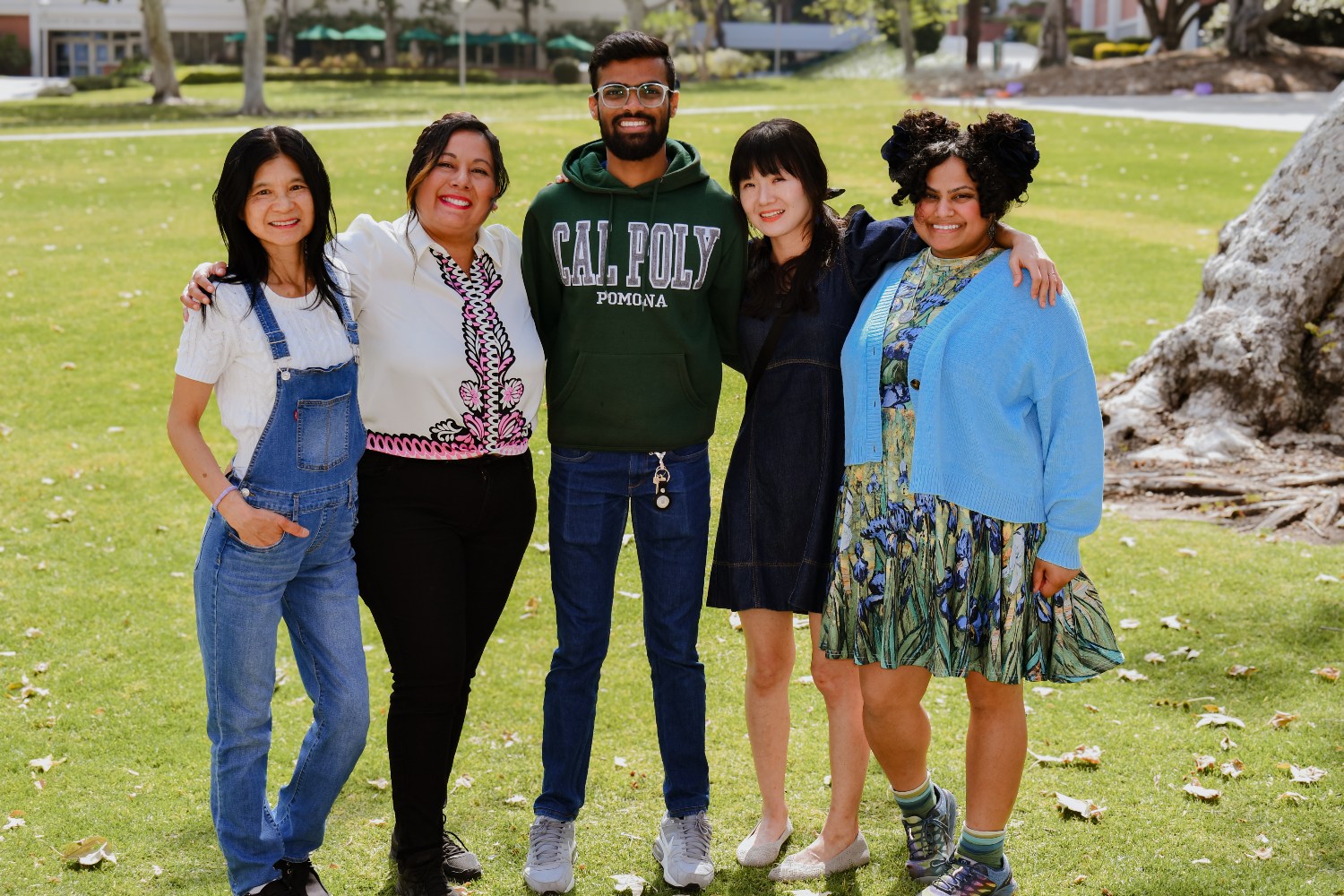2023-2024 Dean's Intiative Scholars, Afrofuturism and C3W
April 1, 2024
Meet the 2023-2024 Dean's Intiative Scholars, Afrofuturism and C3W
Afrofuturism Initiative: supports the advancing of Black student success and elevating Black excellence across student, staff, faculty, and community spaces. Afroturism celebrates the themes of imagination, technology, liberation, and the future. Afrofuturist Scholars (student-focused) and Afrofuturist Fellows (faculty-focused) who have a demonstrated knowledge and experiences will be recruited to help facilitate the goals of the initiative. Read More.
2023-2024 Scholars and their projects:
Community-Care and Wellness (C3W) Initiative will recruit Student Scholars and Faculty Fellows who are committed to and have demonstrated experiences in social justice and civic engagement for the purposes The College of Education and Integrative Studies along side so many local and global entities is seeking to thoughtfully navigate post-pandemic factors that cannot be ignored. Lived experiences of food insecurity, racial injustices, housing instability, socioeconomic challenges, isolation, grief, trauma, exacerbated physical and mental health conditions, and lack of access to consistent and integrated care are significantly impacting students, staff, faculty, families, and communities. Read On.
Faculty Mentor, Dr. Hyeryung Hwang.
Faculty Fellow, Dr. Marisol Diaz:The name of this project is called “ S.E.M.I.L.L.A” and stands for Students Engaging & Mobilizing In Lifelong Learning through Advocacy. This project encompasses all five objectives of the College of Education and Integrative Studies’ Community-Care and Wellness (C3W) Initiative. S.E.M.I.L.L.A comes from the Spanish word “semilla” which means seed. The acronym was inspired by a traditional Mexican proverb, “Nos quisieron enterrar, pero no sabían que éramos semillas” which in English translates to “ They tried burying us but they did not know we were seeds”. This proverb has been used in various community discourses and protests as resistance to physical and cultural eradication and genocide. Through this project, students will build community relationships while planning and advocating for social change. Overall, the theme of the project carries the metaphor of a semilla (seed) as it relates growth and expansion. The purpose of this study is to capture and understand the experiences of local Pomona residents and their schooling experience in the PK-12 system, with a specific focus on parents and caregivers who have been historically marginalized due to race or socioeconomic class.The C3W Project aims to engage CPP students in research while identifying and prioritizing equity and social justice issues in the Pomona community. This project encompasses several key objectives, beginning with researching the history of Pomona to provide contextual understanding of current sociopolitical issues. Students will critically reflect on their own positionality and identity, studying power, oppression, and systemic inequalities, particularly within the educational system. They will be introduced to undergraduate research, learning about the Institutional Review Board (IRB) process, and will develop and distribute surveys to gather data from parents and caregivers. This data collection is aligned with action planning for advocacy and social action, emphasizing the importance of community-driven change. Students will analyze the data, identify common themes, and write preliminary reports. They will then present their findings to the Pomona Unified School District, incorporating feedback from community members to validate their results. The project culminates with students submitting their findings to a national education conference and potentially organizing a community educational event. Throughout the process, students will maintain digital journals to reflect on their learning and enhance their critical thinking skills.
Lyfen Clarke: the project's goal is to create a more holistic society by advocating for social justice and improving resource accessibility for low-socioeconomic communities. Drawing on personal and professional experiences with Long Beach Head Start and as a paraeducator in Special Education, the leader aims to foster community-centric conversations and actions through a social justice lens. The proposed project will initiate open dialogues acknowledging systemic inequalities and racism, facilitating community workshops, training for school staff and students, and a media platform to educate and raise awareness. These efforts will partner with diverse communities, leveraging knowledge of local history, culture, and demographics to address social inequities. By uniting communities and engaging influential leaders, the project seeks to collectively advocate for funding and support, ensuring that social issues such as housing, racism, and mental health receive the necessary attention for a more equitable society.
Chaitanya Ganpat Nalage: This project proposes a Community Advocacy Hub that aligns with the C3W Initiative's objectives, aiming to create both digital and physical spaces that foster community-centric conversations and actions. Key components of the hub include establishing an online platform for collaborative discussion, engaging interdisciplinary teams of students, staff, faculty, and community members to facilitate conversations, and organizing regular community forums to identify and prioritize equity and social justice issues. The project will focus on creating actionable plans through participatory workshops, leveraging insights from both campus and community-based research. The anticipated impact is a strengthened sense of community agency, with the hub serving as a central point for co-creating advocacy strategies and initiating social actions. By transcending traditional boundaries, this project encourages diverse stakeholders to contribute their unique perspectives, fostering a dynamic and inclusive environment for sustained community-driven change.
Priscilla Garcia: This project, “Serenity Scholars: A Social Work Initiative for Student Support”, aims to address the needs of formerly incarcerated college students within Project Rebound by easing the load on the on-campus CAPS center. The initiative begins with a thorough needs assessment, identifying specific challenges and conducting interviews to understand individual situations. Based on this, individualized support plans are developed, outlining goals, timelines, and strategies. The project offers one-on-one counseling and monthly check-ins to ensure student well-being. Collaborations with both campus and off-campus organizations will be established to provide comprehensive resources. Accurate documentation of sessions and monthly assessments will be maintained using the Qualtrics platform, facilitating detailed reporting to potential stakeholders. By establishing an in-house social worker for the semester, Serenity Scholars aims to gather essential data to advocate for program expansion across departments, colleges, and campuses, fostering a supportive environment for the target audience.
Aloysius Reharta’s: project entitled “The Community Health Analytics Initiative (CHAI)” aims to utilize data and analytics effectively to improve public health and wellness in line with the goals of the C3W Initiative. Key elements involve gathering extensive data from healthcare providers and community centers, encompassing both quantitative metrics and qualitative insights to gain a thorough understanding of health issues. CHAI intends to formulate practical health intervention plans customized to fit the specific needs of each community, working closely with local authorities for implementation and continuous assessment. Objectives include identifying and prioritizing health concerns, fostering community engagement in health dialogues, implementing evidence-based interventions, and establishing a replicable model for enhancing community-focused health initiatives. Ultimately, CHAI aims to bridge the gap between data insights and community health needs, promoting a more knowledgeable and healthier community.
Serena Manjur’s: CEIS 3rd Space project is a visionary initiative aimed at serving as a dynamic hub for CEIS students, educators, and alumni, rooted in principles of collaborative knowledge construction and shared power in teaching. Its primary objective is to cultivate a supportive community and provide equitable access to networking and fieldwork experiences for K-12 teachers, professors, alumni, and prospective educators. Key components include a Mentorship Program focused on sustaining co-mentorship networks and fostering long-term connections across diverse backgrounds and career stages. The project also addresses financial barriers to fieldwork experiences through partnerships with the Cal Poly Career Center and school districts, promoting hands-on learning opportunities consistent with Cal Poly Pomona's 'learn by doing' philosophy. Anticipated impacts include creating a transformative learning environment that promotes inclusivity, collaboration, and professional growth among educators, contributing to a more connected and adaptable educational community at Cal Poly Pomona.
Melba Yarbrough’s: C3W project focuses on addressing language barriers in career access within diverse communities. The project nurtures wellness and resilience by promoting cultural understanding and equipping individuals with skills to thrive in a globalized workforce. Key components include building community partnerships to identify specific language barriers, conducting interactive workshops with bilingual facilitators, establishing a mentorship network, and launching advocacy campaigns to raise awareness and promote inclusive hiring practices. The project aims to increase language acquisition skills, enhance career preparation, and reduce communication-based disparities in the workplace while strengthening bonds between diverse communities. Through evaluation and dissemination of findings, Melba anticipates empowering communities, fostering inclusive workplaces, and driving sustainable change towards a more just and interconnected society.


